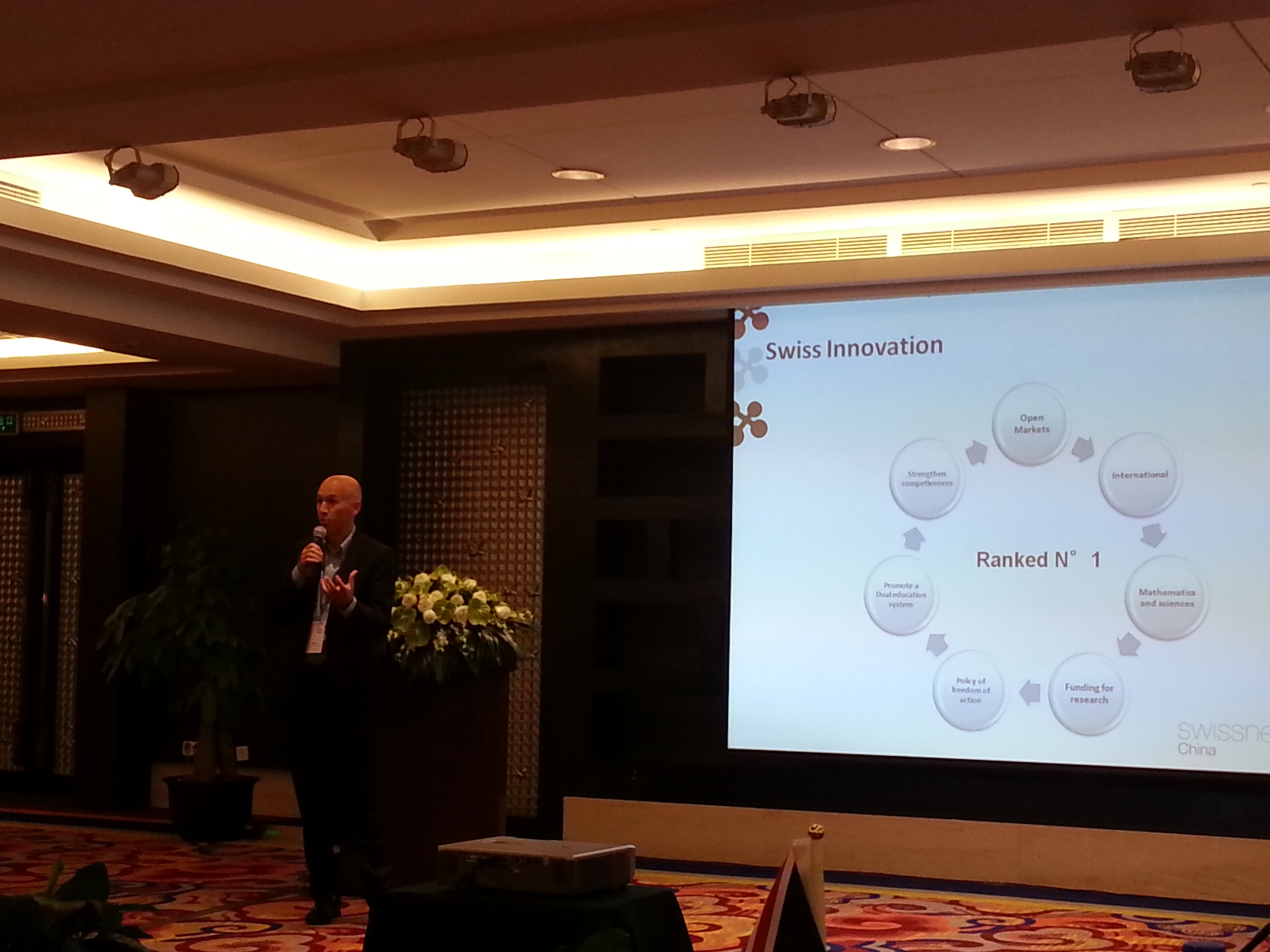CHINANO 2013 Conference & Expo took place in Suzhou, the city that is known as China’s nanotechnology commercialization and innovation hub. The main topics of the conference were nanotechnologies for energy and clean tech, nanotechnology applied in prevention and diagnosis, nano-tech investment matchmaking, etc. Many Chinese nanotechnology companies and international delegations attended the conference and the expo.
Pascal Marmier, the director of swissnex China, gave a presentation about the Swiss innovation in nanotechnology at the international roundtable. His talk gave an overview of the nanotechnology activities in Switzerland and the existing cooperation between Switzerland and Chinese universities in the field of nanotechnologies. Here is a short summary of his talk at CHINANO 2013.
"Switzerland is considered the pioneer of nanotechnology and belongs to the most innovative countries worldwide in the field of nanotechnology. It started in 1981, as Heinrich Rohrer invented the scanning tunneling microscope (STM) at Zurich lake, which became the key instrument to open the door to the world of nanotechnology.
Switzerland has recognized the importance and commercial potential of nanotechnology early on. Many Swiss companies have developed their expertise in nanotechnology and achieved commercial success. Scheoller Textil AG uses nano-based finishing to develop intelligent textile products, which allow dirt and water to simply run off the surface. The ETH startup Nanograde produces customized nanoparticles. In addition, large pharmaceutical companies such as Novartis and Roche in Basel area are the leading force in nanomedicine.
A lot of cooperation between industrial partners and universities accelerate the Swiss innovation in nanotechnology. One is the Nano-Tera initiative. Nano-Tera aims to bring Switzerland to the forefront of a new technological revolution: using engineering and information technology to improve health and security, and to broaden our management of energy and the environment. Nano-Tera has achieved outstanding results in the areas of biosensing, design of medical implants and diagnosis tools, and monitoring systems for the environment. Several Chinese universities are also involved in this program: Peking University, University of Science and Technology of China, etc."
Reported by Meijun Liu, Academic Intern, MSc. Micro and Nanosystems, ETH Zurich


